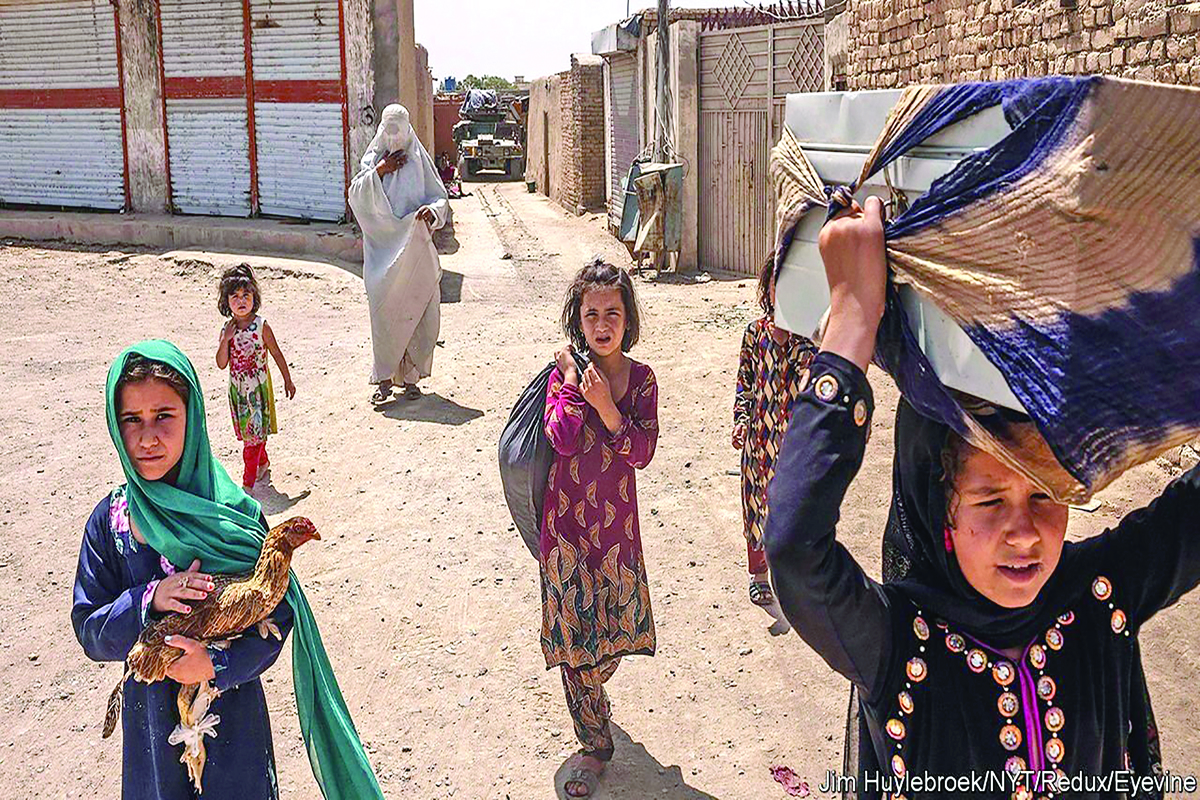When America commenced its withdrawal, it opened the doors for the Taliban to take control of Afghanistan. There is no doubt that the Taliban was supported by Pakistan and China for their selfish interests. With the Taliban in control of the country, the world is rushing to evacuate its citizens and those who worked alongside them. It is a rush against time, as the Taliban is exploiting the scenario by limiting those who can leave as also slowing movement of people to the Kabul airport, apart from taking hefty bribes.
The blast at Hamid Karzai airport last week led to mass casualties and impacted the evacuation, with many European nations backing out. The ISKP, which claimed responsibility, is one of many terrorist groups operating in Afghanistan; most of whom cannot be easily controlled, leaving Afghanistan as a cauldron of terrorist groups threatening those who engage with the Taliban. As Afghanistan’s ambassador to India, Farid Mamundzay, had mentioned in an interview prior to the Taliban takeover, “the Taliban has close links with as many as 20 terror groups who operate across the region from Russia to India. Their activities are already visible on the ground, and they pose a significant threat to the region.”
Globally, the takeover of Afghanistan by the Taliban, imposition of Sharia laws, exploitation of women and suppressing the local population brings forth images of similar actions by the ISIS in Iraq and Syria. While the ISIS took over part of a nation and declared a caliphate, leading to a global response, the Taliban are doing almost the same with impunity in Afghanistan. The concern is not of taking over Afghanistan or overthrowing the US but spreading their ideology. The elimination of the ISIS leadership in Iraq did not end the movement. Their ideology spread to multiple parts of the globe including Afghanistan and South Asia. Suppressing it in one place leads to its resurrection elsewhere. It is here to stay.
There is a similar global fear of what this takeover could imply for the region and the world. This was echoed by the G7 foreign affairs committee when discussing Afghanistan. Their statement read, “with the spill over of terrorism possible, we would like to see India invited to attend this G7 meeting.” It also mentioned inclusion of the African Union, “as other terror groups are beginning to muster in the Horn of Africa.” The message being conveyed is that there is a possibility of terrorist groups in different parts of the globe swearing allegiance to the Taliban and attempting to replicate their success.
Afghanistan’s neighbours are most wary of this threat. The only countries whose embassies continue to operate in Kabul are Afghanistan’s neighbours, Iran, Russia (due to borders with its satellite countries, Tajikistan and Uzbekistan), China and Pakistan. They are compelled to placate the Taliban due to their individual insecurities.
China and Pakistan, though engaging the Taliban for personal interests, remain uncertain of how they will act. Both are hopeful that the Taliban will subdue terrorist groups acting against them, though currently there are no signs of it. China seeks to exploit Afghan resources, inputs of which remain sketchy, as a realistic survey has yet not been conducted, as also extend its Belt Road Initiative into the country. For this, China seeks a peaceful Afghanistan, which is nowhere on the horizon. There is no doubt that ETIM (East Turkistan Islamic Movement) and the TTP (Tehreek-e-Taliban Pakistan) are emboldened by the success of the Taliban and would seek to replicate it.
Iran has its own concerns, though it maintains close ties with the Taliban, and both share a common hatred for the US. In July, there were reports of Iran deploying its army along the Afghan border. This while it hosted talks between the then Afghan government and the Taliban. Iran’s main concern are Afghanistan’s Shia Hazara residents, reports of whose random killing have emerged in recent days. Iran also possesses its battle hardened Fatemiyoun Brigade, which had operated in Syria, comprising mainly of Afghans from the country’s Shi’ite Hazara minority. Some inputs suggest that in case the Taliban suppresses Hazaras, these might be employed to challenge them.
Russia, while celebrating the US withdrawal, had never expected a rapid Taliban takeover. While it maintains its embassy in Afghanistan and its ambassador even praises the Taliban for enhancing security in Kabul, there is concern in Moscow. In July, there were reports of Russia deploying troops and armoured vehicles along the borders of Tajikistan and Uzbekistan on the pretext of exercises.
Thousands of Afghan soldiers, aircraft and helicopters have already reached Tajikistan and its occupants have sought asylum. Russia fears the influx of terrorist groups including the ISIS into Tajikistan and Uzbekistan as also elements of the Islamic Movement of Uzbekistan. Following talks between Tajikistan’s President, Emomali Rahmon, and Pakistan’s Foreign Minister, Shah Mahmood Qureshi, Tajikistan announced it would not recognize any government in Kabul which was not an inclusive government.
Fear of influx of refugees from Afghanistan, possibly containing members of terrorist groups, also dominate concerns of neighbours. While western nations would withdraw those who worked alongside them, neighbouring countries could face a flood of refugees. There are reports of thousands queuing up on the Pak-Afghan and Iran-Afghanistan borders. As a precaution, other countries are beefing up deployment of forces along borders. Turkey, fearing an outflow of refugees through Iran has constructed a wall along its borders.
With the western world and IMF, main donors for Afghanistan, blocking release of funds as also the US freezing $9.5 billion in assets of the Afghan central bank, the country is in financial doldrums. None of its supporters, including Russia and China, would enhance financial aid for the country to survive.
Russia, China, Pakistan and Iran were nations which were backing the Taliban for personal interests. They displayed jubilation on a Taliban takeover. In no time, doubts are rising on Afghanistan’s internal stability and Taliban adhering to its promises. The scenario within Afghanistan is fluid and could deteriorate, affecting its immediate neighbourhood before impacting the region beyond.
Advertisement











